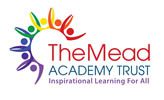Underpinning Principles: Community engagement
Community engagement is a two-way street where the school, families, and the community actively work together, creating networks of shared responsibility for student success. It is a tool that promotes civic well-being and that strengthens the capacity of schools, families, and communities to support young peoples’ full development.
Community engagement within our Trust is characterised by:
Respectful Relationships
Learning is a lifelong journey, which begins at home where parents/carers are ‘children’s first and most enduring educators’. Teachers understand that some of the most meaningful learning experiences that take place in a young person’s life come from within the home environment and want to build on these experiences within school. Teachers aim to build trusting, reciprocal relationships with parents/carers in order to get to know each child as an individual, and understand how they ‘tick’.
Communication
Teachers ensure they have regular dialogue with parent/carers about their child. Teachers aim for this to be a genuine exchange of ideas as well as about information giving. It is important for teachers understand form parents/carers what works to motivate, calm and gain their child’s cooperation. Communication takes place in a variety of ways including, phone calls, social media, newsletters, questionnaires, forums, noticeboards, curriculum meetings, home visits. Teachers and leaders continuously reflect on ways to make levels of communication even more effective for the benefit of the children, and welcome ideas from parents/carers.
Engagement in Learning
Teachers empower parents/carers to engage in their children’s learning by working closely with them so that they understand what their child does at school and how they can best support this at home (e.g. how they will learn maths, what phonics means, any tips or resources to support reading). Parents/carers are invited in to school to explain and model how key strategies are taught. Teachers aim to support parents/carers to recognise that the simple things that they do can make a big difference to how their child fares at school – like making sure they get a good night’s sleep, asking them about school, showing a positive attitude towards learning, or reinforcing behaviour expectations. “Parental engagement is a powerful lever for raising achievement in schools. Where parents and teachers work together to improve learning, the gains in achievement are significant.” (Harris and Goodall 2007, p5)
A Judicious Approach to Home Learning
Home learning is only offered when there is a clear justification for it, where there are evident benefits for the children and their families and above all where it has a clear purpose and promotes a greater love of school and interest in learning. Children who may have barriers accessing or completing the learning are not disadvantaged in any way. Home learning is typically used to practise and recap on learning, knowing that this engages memory retrieval and supports automaticity; extension of learning seeking to help children to make links across subjects and connect learning to practical applications; pre-learning to engage and motivate children with project, themes or questions to be undertaken in the future. Teachers ensure parents/carers understand their role in the home learning and support them to have the right resources and skills to support their children to undertake it.
Commitment to Life-long Learning
The Trust takes its responsibility in motivating adult family members to continue their own learning seriously and offers opportunities for them to develop their own knowledge and skills in a variety of ways. This includes family learning and support sessions.
Community Involvement
The Trust aims to increase community involvement programmes and explore opportunities for further involvement with local businesses, civic organizations, charities, non-profit foundations, and other groups. The creation and publication of sponsorship and the donation of resources and artefacts from the community is always highly appreciated. Teachers and leaders value a curriculum that is outward-facing, participative, and collaborative and are committed to using the local community as both a source of information and expertise as well as a rich resource for investigation and exploration. Children and their families are encouraged to recognise the cultural affordance of their locality. Teachers are always keen to enlist volunteers to come into school to broaden and enrich the children’s lives and horizons.
Celebrating Diversity
A culture in which children value and respect each other and where the concept of difference is openly, honestly and sensitively explored is promoted. Teachers and leaders welcome positive role models that promote social inclusion and challenge stereotyping surrounding race, disability and gender.
Recognising Achievement
All staff are very proud of the achievements of current and former pupils. Achievements outside of school of school are celebrated and recognised whenever possible. The achievements of former pupils are shared with current children as they can offer; real life examples of what is possible and the working world. Whenever possible we invite ex-pupils back to school to share their achievements aiming to inspire current cohorts and boost confidence to try something new and aim high when thinking about what they can achieve.
Embedding A Whole School Approach
All staff have community engagement activities clearly defined as part of their role, and are provided with appropriate support and training. Senior leaders have specific roles that prioritise the whole-school approach, e.g. in attendance or engaging with particular groups of families.
